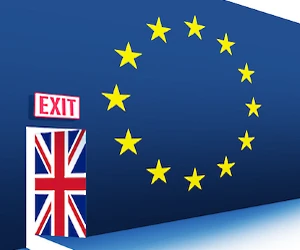Brexit: Titanic change

The big questions on Brexit have been thoroughly explored, but only based on the assumption that other variables will remain equal, argues Paul Leyland, meaning a vote for Brexit should not just be seen as another normal day on the bridge for UK-facing gambling executives.
In many respects, the (UK-facing and .com) world of gambling is the ‘Little England’ that (U)Kippers yearn for and Liberals scorn.
It wants to be left alone – until a court or country looks vaguely favourably towards it; it loves a fight – but mostly among its own; it agonises over its own rules and regulations – but often blithely ignores the bigger picture of economic, cultural and technological change.
Brimming with confidence in the structural resilience and/or growth of gambling, and the (eventual) liberalisation of most markets, many operators are long on stokers, short on lookouts.
It is unsurprising then that the ‘big questions’ on Brexit have been:
- Does it change my operating model?;
- Can I still employ people where I want?; and
- Will it impact my ability to access European markets?
These answers have been thoroughly explored, but only based on the assumption that other variables will remain equal. However, they won’t, and these issues are just the tip of the iceberg.
First, EU law has had an enormous impact on gambling laws (and challenges) in the UK as well as elsewhere in Europe. There are two things Brexit will change here, with far-reaching consequences.
From a UK domestic policy perspective, the government will be freed up to do as it likes. The Gibraltar Betting and Gaming Association's challenge to Point of Consumption tax can be sat out until the basis of law becomes irrelevant.
Horse racing levy reform can be pressed ahead with in the knowledge that the UK alone will be able to decide whether it is State Aid and whether it cares.
All talk of government’s need to be ‘proportionate’ when considering restrictions will become mere hot air. Should Labour win in 2020, a Corbyn government could even choose to nationalise gambling.
EU without the UK – a very different place
The EU has therefore provided a number of constraints, often taken for granted, which makes government more predictable. Independence removes these constraints.
Second, the EU without the UK will be a different place. It will probably insist upon closer union for the remaining members as a defence mechanism, and will become more protectionist given the strengthening of the Franco-German axis.
It might also seek to cause trouble for the UK and its offshore affiliates: hell hath no fury like a bureaucrat scorned. Consequently, opportunities to take part in ‘liberalising’ EU jurisdictions ‘could’ become more problematic, as may challenging the illiberal ones.
In an increasingly global world, free movement of people is key to ongoing success. This is much bigger than the implications for the Sotogrande-Gibraltar commute and, more importantly, is a bigger potential opportunity cost than current problem (which is why it is so easy to miss).
The UK is good at exporting its remote gambling expertise to newly opened markets – both physically as well as intangibly. It would be extremely easy for member states to insist upon only local (or EU) talent being recruited to local offices – reducing expertise, synergies and, probably crucially, control.
There are also a host of more fiddly bits of harmonisation. Money flows freely around the EU thanks to MiFID (et al). Brexit could cast the UK’s status in the EEA payments and banking nexus into doubt, with potentially far reaching consequences for what is the lifeblood of the sector.
As another example, many EU jurisdictions require servers to be based in the EU. Brexit (including Gibraltar) could force greater levels of local presence: more cost, fewer synergies, potentially less control.
Uncharted waters
But the biggest driver is not gambling-related at all: the economic impact of Brexit is likely to be far-reaching.
Many gambling companies kid themselves when they think they are resilient to economic pressures – greater levels of participation, (relatively) reduced exposure to the cash economy and an increasing inequality gap (especially employed vs. under-unemployed) – which all drive up cyclicality.
Even Brexiteers do not doubt short-term pain; the extent of long-term gain will depend (at least in part) on the competence of our newly liberated political masters (should the UK vote for Brexit).
Whatever our views on that might be, the risk undoubtedly goes up (as, to be clear, do the potential rewards). As an aside, not inconsequential to omni-channel operators, Brexit is also likely to threaten the other Union – Scotland, possibly Northern Ireland – the price of oil notwithstanding.
A vote for Brexit should not just be seen as another normal day on the bridge for UK-facing gambling executives, or even just an opportunity to rearrange the deckchairs.
We will be embarking onto a brand new vessel in uncharted and foggy waters – a decision to plough on at full speed based on the assumption that the way ahead is clear is how to hit icebergs the hard way.
